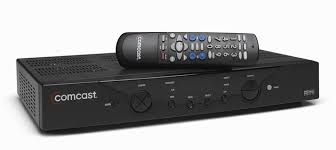
Breaking News
 Tucker Carlson: Jeffrey Epstein Worked on Behalf of Israel | Syriana Analysis
Tucker Carlson: Jeffrey Epstein Worked on Behalf of Israel | Syriana Analysis
SEMI-NEWS/SEMI-SATIRE: July 13, 2025 Edition
 Interview 1962 - Epstein Justice: What's Next? with Nick Bryant
Interview 1962 - Epstein Justice: What's Next? with Nick Bryant
Top Tech News
Magic mushrooms may hold the secret to longevity: Psilocybin extends lifespan by 57%...
 Unitree G1 vs Boston Dynamics Atlas vs Optimus Gen 2 Robot– Who Wins?
Unitree G1 vs Boston Dynamics Atlas vs Optimus Gen 2 Robot– Who Wins?
 LFP Battery Fire Safety: What You NEED to Know
LFP Battery Fire Safety: What You NEED to Know
 Final Summer Solar Panel Test: Bifacial Optimization. Save Money w/ These Results!
Final Summer Solar Panel Test: Bifacial Optimization. Save Money w/ These Results!
 MEDICAL MIRACLE IN JAPAN: Paralyzed Man Stands Again After Revolutionary Stem Cell Treatment!
MEDICAL MIRACLE IN JAPAN: Paralyzed Man Stands Again After Revolutionary Stem Cell Treatment!
 Insulator Becomes Conducting Semiconductor And Could Make Superelastic Silicone Solar Panels
Insulator Becomes Conducting Semiconductor And Could Make Superelastic Silicone Solar Panels
 Slate Truck's Under $20,000 Price Tag Just Became A Political Casualty
Slate Truck's Under $20,000 Price Tag Just Became A Political Casualty
 Wisdom Teeth Contain Unique Stem Cell That Can Form Cartilage, Neurons, and Heart Tissue
Wisdom Teeth Contain Unique Stem Cell That Can Form Cartilage, Neurons, and Heart Tissue
 Hay fever breakthrough: 'Molecular shield' blocks allergy trigger at the site
Hay fever breakthrough: 'Molecular shield' blocks allergy trigger at the site
Why You Should Own Your Cable Box

The tyranny of the set-top box may soon be over.
The way it works now, you're forced to rent a cable box from the likes of Time Warner Cable and Comcast to the tune of about $230 per year. The very idea that in 2016 you need a dedicated piece of hardware, whether it's Comcast's X1 or Time Warner Cable's latest "whole home" DVR, just to tune into Guy's Grocery Games on Food Network is crazy on its own, but the fact that you have to rent these boxes in perpetuity is even worse.
The Federal Communications Commission on February 18 issued a Notice of Proposed Rulemaking that would make it so that consumers wouldn't have to rent a set-top box from their cable company.
Although this is just the first step in a lengthy process, the prospect of being able to own your own cable box, just as you're able to own your own cable modem or smartphone, already has supporters of the measure giddy with excitement.
And that's great, of course, but I wanted to lean more about the possible implications of being able to own my own set-top box. (I'd have to get cable first, but that's another matter.) I'd expect to see lower prices as a result of competition among hardware makers, but is that all? What happens when more and more people, from different communities, can afford cable? Might networks be encouraged to create more diverse programming? Heck, what are the odds that the cable companies will fight this tooth and nail (spoiler: it's a lock), and why?
To find some answers to questions like these I reached out to some folks to get a better understanding of the big picture here.

 Flux Rules
Flux Rules AI Getting Better at Medical Diagnosis
AI Getting Better at Medical Diagnosis

